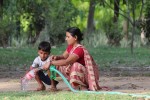News
2017-07-24 | permalink
UN warns 2.1 billion people lack access to safe drinking water
 Three in ten people around the world lack access to safe drinking water (Photo: CC0)
Three in ten people around the world lack access to safe drinking water (Photo: CC0)
The world has made little progress on sanitation and drinking water, leaving 2.1 billion people without access to safe, readily available water at home and 4.5 billion people without safely managed sanitation. According to a report released on July 12th by UNICEF and the World Health Organisation (WHO) this threatens to expose the world’s poorest to preventable health risks. Of the 2.1 billion people who do not have safely managed water, 844 million do not even have a basic drinking water service. This includes 263 million people who have to spend over 30 minutes per trip collecting water from sources outside the home, and 159 million who still drink untreated water from surface water sources, such as streams or lakes. There are big gaps in service between urban and rural areas. Two out of three people with safely managed drinking water and three out of five people with safely managed sanitation services live in urban areas. Of the 159 million people using untreated surface water, 150 million live in rural areas. “Safe water, sanitation and hygiene at home should not be a privilege of only those who are rich or live in urban centres,” said WHO Director-General Dr Tedros Adhanom Ghebreyesus. “These are some of the most basic requirements for human health, and all countries have a responsibility to ensure that everyone can access them.”
Of the 4.5 billion people who do not have safely managed sanitation, 2.3 billion do not even have access to basic sanitation. This includes 600 million people who share a toilet or latrine with other households, and 892 million people – mostly in rural areas – who still have to defecate in the open, for example in street gutters, behind bushes or into open bodies of water. While billions have gained access to basic water and sanitation services since 2000, faster progress will be required in order to achieve the Sustainable Development Goals (SDGs), which call for ending open defecation and achieving universal access to basic services by 2030. According to the report, in 90 countries progress towards basic sanitation is too slow, meaning they will not reach universal coverage by 2030. With regard to drinking water, the situation looks better. By 2015, 181 countries had achieved over 75% coverage with at least basic services. Australia and New Zealand and North America and Europe are already very close to achieving universal basic drinking water services, while Latin America and the Caribbean, as well as Eastern Asia and South-eastern Asia, are on track to achieve universal access by 2030. Although many people have gained access to basic drinking water, good hygiene remains a problem in many regions. Many homes, healthcare facilities and schools still lack soap and water for handwashing. This puts the health of those people at risk for diseases, such as diarrhoea. As a result, 361,000 children under the age of five die due to diarrhoea each year. (ab)

